- Home
- Paul Christopher
Red Templar
Red Templar Read online
Red Templar
Paul Christopher
Paul Christopher
Red Templar
“There is no proletarian, not even a Communist, movement that has not operated in the interests of money, in the direction indicated by money, and for the time being permitted by money-and that without the idealists among its leaders having the slightest suspicion of the fact.”
— Oswald Spengler, The Decline of the West
“Man has an invincible inclination to allow himself to be deceived.”
— Friedrich Nietzsche, “On Truth and Lies in a Nonmoral Sense”
“La mediocridad se impone.”
— Fermina Alfonso, Cantante de Opera Cubana
PROLOGUE
The bearded man stumbled out of the kitchen entrance of the enormous house, blood and vomit streaming from his open, gasping mouth. The snow was blinding and he beat at it furiously, desperately trying to see where he was going. The pain in his upper back was excruciating, and his right ear had been torn to shreds by Felix’s second shot. The bearded man brushed a bloody hand across his face. His eyes were almost swollen shut from the beating he’d taken, but if he could only make it home, home to his little girl, Maria, he would be all right.
He heard muffled footsteps in the snow behind him, the footsteps of a running man. It had to be Rayner, Felix’s sodomite friend from Oxford. Despite the awful pain welling up in his stomach and the blood draining from the stab wounds in his back, the bearded man increased his pace, his heaving lungs on fire, his bleary eyes searching for the steps that led down to the frozen canal. If he could cross to the other side he could disappear into the maze of streets and alleys and, if he was very lucky, reach safety.
He gritted his broken teeth and forced himself onward through the blizzard, silently cursing the cowards who would so savagely attack a man of God. He had never wanted anything more than to bring his knowledge and his powers to the world, but to them he was a danger: light to their darkness, good to their whispered evil, courage to their cowardice.
Somehow he managed to find the steps and staggered downward, his left hand gripping the cold metal railing. He risked a quick look back over his shoulder. There was no sign of Felix or his foppish, smooth-faced friend. His heart beat faster. There was hope! Of course there was hope, for wasn’t he one of the chosen of God, with nothing less than the healing faith of the Xristos coursing through his hands? He had brought a sick and dying prince back to his mother’s arms; there must be hope for him as well. Certainly Saint Seraphim would not abandon him now.
The bearded man reached the ice of the canal, then slipped and slid toward the bridge two hundred yards away, where he knew there was another set of steps. There would be lamplight on the bridge and perhaps even a policeman. Here and there the ice was black and thin, cracking beneath his feet. He skirted those areas, his eyes on the snow-shrouded span of the bridge.
The bearded man reached into the pocket of his dark, heavy coat and felt the heavy oval object deep in the fleece lining. . This, at least, he could keep from them, their foul crucible, their blasphemous secret. Such things were monumentally dangerous and could change the world if revealed by those without the understanding to deal with them. The proverb learned by the bearded man from his friend Spiridon Ivanovich still held true: “For upright men there are no laws,” and if he was nothing else in this frozen hell of a city on the edge of the world, he was an upright man.
The terrible pain deep within his chest caught him by surprise. He stopped dead in his tracks and stared downward. There had already been bloodstains on his white cotton shirt from the beating and the stabbing, but this was something else. This was blood from a spigot splattering out in thick, gouting splashes, deep red heart’s blood.
The bearded man looked up. Across a narrow patch of dark, thin ice he could see a figure with a large pistol in his hand. The man was slender, with a tweed overcoat over his uniform. Oswald Rayner, George Buchanan’s man from the old Saltykov mansion on the Neva.
“ You’ve killed me!” said the bearded man, his accent that of a peasant. He fell to his knees, his hands cupping the blood still streaming from his chest.
"No” said Rayner. “Not yet I haven’t.” He raised the big Webley again, aimed it at the bearded man’s face and pulled the trigger. A large circular hole was punched in the man’s forehead and the back of his head turned into a fountain of blood, bone and brains spraying back for several yards along the ice-covered canal. “Now I’ve killed you,” said the young lieutenant. He stuffed the Webley back into the pocket of his overcoat. The body of the bearded man sagged forward and then struck the ice. The ice cracked and then broke under the weight of the body. The remains of the bearded man slid instantly into the black, freezing water. The Mad Monk was gone at last.
Grigori Rasputin was dead, taking his secrets with him.
1
Lieutenant Colonel John Holliday (U.S. Army Rangers, retired) had spent half a lifetime in the military and had flown millions of miles in various airplanes without the slightest fear for his own safety. But now as he rode along in a Tupolev 154 airliner he was suddenly aware of the craft’s appalling crash record, not to mention its NATO designation: Careless.
“Why did we have to take this particular flight, Eddie?” Holliday asked his companion. Eddie, whose full name was Edimburgo Vladimir Cabrera Alfonso, was an expatriate Cuban who had saved Holliday’s life recently in the middle of an African revolution. The man was now accompanying him to Turkey, and perhaps on to Russia. They traveled at the request of a man named Victor Genrikhovich, who’d buttonholed them in the Khartoum International Airport. Genrikhovich, who only spoke Russian, looked like someone who’d just walked out of a Bowery flophouse, and claimed he was a curator at the Hermitage Museum in St. Petersburg.
Under most circumstances Holliday would have smiled, given the man a dollar and gone on his way, but this Bowery bum knew the name Helder Rodrigues and the Latin term Ferrum Polaris. Either the name or the Latin would have stopped Holliday in his tracks; both together were enough to get him onto a plane bound for Istanbul, even a decrepit old Soviet model belonging to a company called Assos Airways.
“Senor Genrikhovich said it would get us to Istanbul the most quickly,” answered Eddie. The Cuban had been born barely a year after Fidel made his triumphant entrance into Havana in 1959, and spoke fluent Russian. He turned to Genrikhovich, who sat across the aisle eating his complimentary cheese sandwich, and spoke a few machine-gun phrases. Genrikhovich nodded and spoke briefly through a mouthful of half-chewed sandwich. Eddie turned back to Holliday. “Same as before. He says there is someone in Istanbul he wants us to meet. This man will explain everything.”
“He has to tell us something. I’m on a plane to Turkey, for Christ’s sake. Who are we meeting?” Holliday asked.
Another exchange between Eddie and Genrikhovich, and Eddie turned back to Holliday. “His name is Theodore Dimitrov. A monk.”
A monk-at least that made a bit of sense, thought Holliday. Helder Rodrigues had been a monk of sorts, guardian of Aos, Sword of the East, one of four swords taken out of the Holy Land by four different Templar Knights shortly after the fall of Acre in 1291, which effectively ended the Christian presence in the Holy Land.
Aos in turn was the perfect mate to the sword he and his cousin Peggy had discovered hidden in his uncle Henry’s library at his home in Fredonia, New York: Hesperios, Sword of the West, the sword that had taken him and Peggy halfway around the world and back again and showed them a dark, underground universe of secrets that still plagued him.
And now this-Ferrum Polaris, Sword of the North. The third Damascus blade of the quartet supposedly made by Alberic, the mythical and magical dwarf blacksmith common to the
mystical cultures of a dozen empires and nations. To Holliday it somehow seemed that the ghosts of those four Templar Knights from eight hundred years ago were haunting him, forcing him to discover their final secrets before their souls could finally rest.
The seat belt sign flashed on and the intercom crackled as the heavily accented voice of the pilot announced that they were making their final approach to Istanbul Ataturk Airport. Holliday sighed. He stared up at a loose, rattling rivet in the roof of the old aircraft and hoped for the best.
2
The Tupolev 154 landed without incident and eventually the three men made their way through customs and immigration. Genrikhovich’s tattered Russian Federation passport, as well as Eddie’s pale blue Republica de Cuba passport, raised a few eyebrows among the bored customs staff, especially since the two were in company with an American identified as a retired lieutenant colonel in the U.S. Army, but they were allowed to proceed.
They stepped out into the modern concourse and Genrikhovich immediately spoke to Eddie in Russian, casting worried glances in Holliday’s direction every few moments. Finally he stopped talking and began scuttling down the concourse, heading for the car rental agencies.
“Now what?” Holliday asked as he and Eddie followed the Russian down the long, echoing corridor.
“The monk, it seems, is not in Istanbul. We must rent a car.”
Holliday sighed wearily. “So where is he?” His patience with Genrikhovich was rapidly running thin.
“Bulgaria,” said Eddie.
Holliday stopped in his tracks. “You’re kidding me.”
“I am afraid not, mi coronel,” the Cuban answered. “The monk is in a place called Ahtopol. Our Russian friend says it is about a hundred and fifty kilometers from here. Perhaps ninety of your miles.”
“You’re sure there really is a monk?”
“According to tovarich Genrikhovich there is.”
“So what was this about a restaurant in Istanbul?”
“Tovarich Genrikhovich is extremely hungry. He has not eaten since leaving St. Petersburg two days ago, except for the sandwiches on the aircraft.”
Orange rubber between pieces of white cardboard. Holliday had taken one bite and stuffed the remainder of his into the seat’s barf bag.
“In for a penny, in for a pound,” said Holliday, setting out after Genrikhovich again.
“?Como??Que dijiste?” Eddie asked quizzically.
“We’re a day late and a dollar short-we’ve gone too far to back off now.”
“Ah.” Eddie nodded. “In Spanish we say, ‘Faltan cinco para el peso.’”
Genrikhovich stopped at the Terra Car booth at the far end of the terminal and had a discussion with the man behind the counter. They spoke in neither Russian nor Turkish as far as Holliday could tell. He asked Eddie, but the Cuban only shrugged. Finally Genrikhovich turned, chattered away to Eddie, and then turned and looked expectantly toward Holliday.
“It is difficult to rent a car that you can take across borders,” explained Eddie, translating. “He needs your credit card to get approval.”
The rental car turned out to be a Moskvich Aleko of roughly the same vintage as the Tupolev on which they’d flown into Turkey. Not only did Holliday have to pay the rental fee, insurance and security deposit; he had to drive as well, since he was the only one with an international driver’s license.
With the car dealt with they went in search of food for Genrikhovich. His choice, bizarrely, was one of three Burger Kings at the airport, where he inhaled a Quad Stacker and fries. Holliday settled for a Whopper Jr., and Eddie begged off entirely, refusing to eat what he referred to as la carne de la calle-“street meat.”
They finally set off, the four-cylinder sewing-machine engine in the Moskvich grinding and banging, barely making fifty miles an hour on the surprisingly good highway leading northeast. Within ten minutes of leaving the airport, Genrikhovich was groaning, his stomach gurgling, and he muttered, “Prash-chayn-ya,” every few seconds for the inevitable and gaseous results of a Quad Stacker on an empty stomach. Eddie rolled the window down and smiled, enjoying the early-fall scenery.
For the first hour the roads were smooth-modern freeways with good signage, even if it was in an incomprehensible language. Foreign traffic signs never bothered Holliday, though; there were invariably rest stops and roadside food and lodging turn-ins where a traveler could always find someone willing to give directions, even if it was half in broken English and half in sign language. As a soldier, Holliday had done a lot of traveling, and in his opinion most people were proud of their country and proud of their innate hospitality-with the possible exception of the Asmat people of New Guinea, who would sooner eat you than feed you.
By the second hour they’d veered even farther north toward the coast, and the roads went from good to bad very quickly. Soon they were traveling on old concrete pavement that kept throwing up stones that sounded like machine-gun bullets whacking into the underbelly and the side panels of the car. Scrubby cedars and pines edged both sides of the two-lane road. By then Eddie had rolled up the window because of the dust and Genrikhovich’s incessant “prash-chayn-ya” apologies for the state of his bowels. The noxious effect of a half pound of meat, four slices of rubbery cheese and six strips of fatty bacon had turned the air in the small, hot and noisy car into a fetid soup.
There turned out to be several border crossings. The first was a modern arrangement of buildings, flags and poles, which they got through with a minimum of fuss and lots of smiles. They quickly filled out visa forms and had their passports duly stamped, and Holliday used one of his credit cards to purchase a walletful of smallish pink and blue twenty-lev notes from the border post’s ATM.
The second border crossing was a slightly tougher-looking but abandoned version of the first that dated back to perestroika. The last one, small, overgrown and choked with underbrush, was a plain, one-man hut with a broken barrier that was probably World War II vintage. It was the off-season, so there wasn’t much traffic.
A few minutes later the two lanes became one, with a mysterious dotted white line where the shoulder should have been. Off to the right the Black Sea appeared, hazy in the distance. To Holliday it looked like every other ocean he had ever seen, and he’d seen a lot of them through the years. Maybe too many. He’d thought about that a lot since the horrors he’d witnessed recently, deep in the African jungle. Maybe it was time to quit. Maybe it was time to do what old soldiers were supposed to do, just fade away. It wasn’t the first time the thought had crossed his mind in the last few years.
Dust or not, Holliday and Eddie rolled down their windows. In the backseat, Genrikhovich just moaned.
“You never talk to me about the ladies, mi compadre. You never talk about you make sex like other men,” said Eddie.
Holliday burst out laughing. He turned toward Eddie, whose deep brown eyes were twinkling like an Irishman’s. The big black Cuban was grinning. He reached out and poked a forefinger into Holliday’s ribs.
“You not uncomepinga, are you, a maricon?”
“No, not if that’s what I’m pretty sure I think it means.”
“You have a lady, a wife?”
“I did, a long time ago.”
“Where is she now?”
“She died. Cancer. More than ten years ago now.”
“Mi mas sentido pesame, compadre, but that is a long time, no?”
“Yes.”
“You loved her very much, yes?”
“Yes, very much.”
“Did you have children?”
“No, unfortunately. We both wanted them, but. .”
“Se agote el tiempo-time ran out, yes?”
“Yes.”
“I have many, little Eddie. . Eduardo, not Edimburgo. ?Alabado sea Dios!, I would not do that to a child. . Cleopatra, Estrella, Domingo, Miroslava. .”
“Miroslava? Funny name for a Cuban.”
“My mother, she had admiration for a famous Mexican actress, Miro
slava Stern.”
“There was such a person?”
“Of course, she is starred with Mel Ferrer in The Brave Bulls. It was the story of Luis Bello; ‘the Swordsman of Guerreras,’ they call him. The greatest matador in all of Mexico. Very, how you say, classico with the ladies as well. He would say to one, ‘Cada dia te quiero mas que ayer, y menos que manana.’ ‘I love you today, but not as much as I will tomorrow.’ And they would fall into his arms. Ay, what a man was this!”
“Where are these children?”
“In Habana.”
“And their mother?”
“Many mothers. One for each child, which is what I am saying to you. You need. . la variedad,?comprende?”
“Variety?”
“Si, variety, la variedad.”
“So you’re telling me I should get out more-is that it?”
“?Que?” Eddie responded, then smiled, nodding. “Yes, this is what I am saying.”
“I’ll think about it.”
“That would be a start.”
Holliday decided that it was time to change the subject. “Genrikhovich’s asleep,” he said, glancing in the rearview mirror. The Russian was snoring loudly.
“At least he is not making peos anymore.” Eddie grinned, pinching his nostrils.
“Good point,” said Holliday. “Maybe things are looking up.”
Ahead of them Ahtopol appeared, a 1950s pastel vision of a Black Sea resort for high-ranking apparatchiks, government employees with enough money to rent an umbrella on the beach and a pink or yellow or blue little villa by the sea. A Marxist-Leninist paradise. The place was a ghost town, and from the highway they could see that all the beaches were empty. It was October and winter was in the wind.
3
The monastery of Saint Simeon the Plowman lay nestled in the hills above Ahtopol, surrounded by stands of birch and alder. Farther up the slopes spread the cool green of a pine forest that had once provided the lumber for the fishing fleets and trading ships that set out from Peronticus, as the Romans had once called the seaside town.

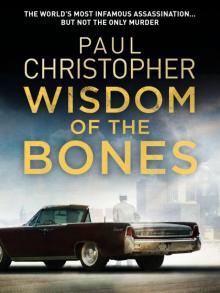 Wisdom of the Bones
Wisdom of the Bones The House of Special Purpose
The House of Special Purpose The Second Assassin
The Second Assassin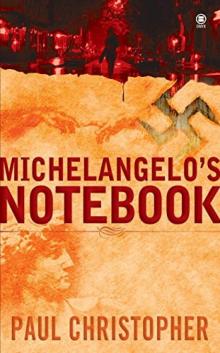 Michelangelo's Notebook
Michelangelo's Notebook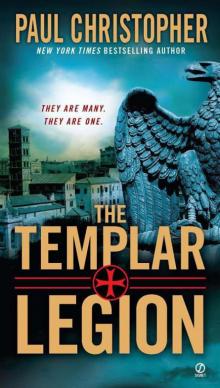 Templar Legion
Templar Legion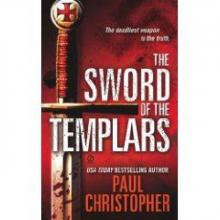 The Sword of the Templars t-1
The Sword of the Templars t-1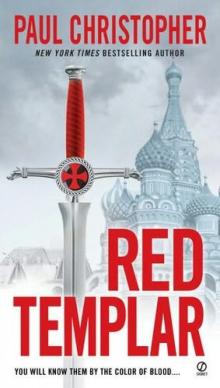 Red Templar
Red Templar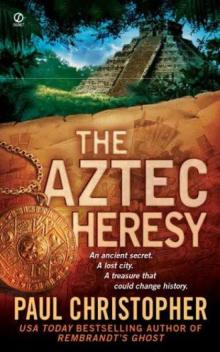 The Aztec Heresy
The Aztec Heresy The Templar Legion
The Templar Legion Rembrandt's Ghost
Rembrandt's Ghost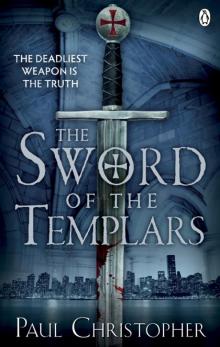 Sword of the Templars
Sword of the Templars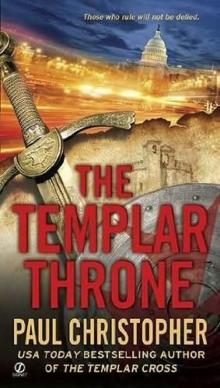 The Templar throne t-3
The Templar throne t-3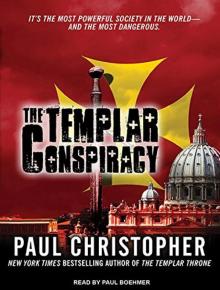 The Templar Conspiracy
The Templar Conspiracy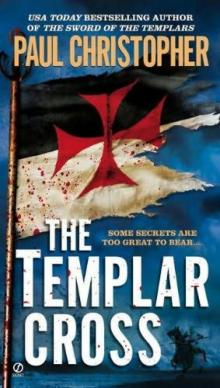 The Templar Cross t-2
The Templar Cross t-2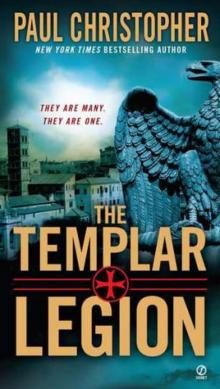 The Templar Legion t-5
The Templar Legion t-5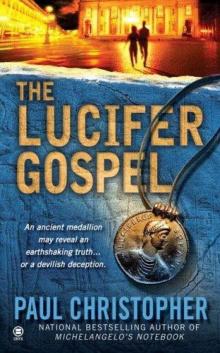 The Lucifer Gospel
The Lucifer Gospel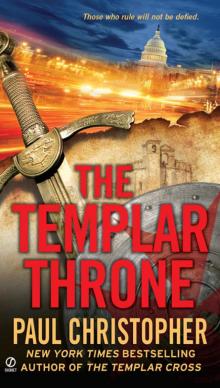 Templar Throne
Templar Throne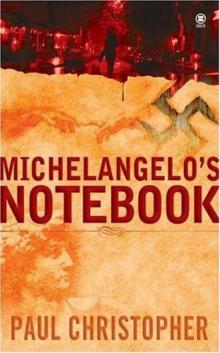 Michelangelo_s Notebook fr-1
Michelangelo_s Notebook fr-1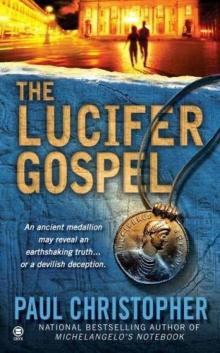 The Lucifer Gospel fr-2
The Lucifer Gospel fr-2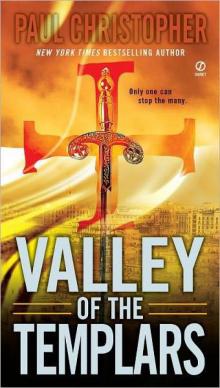 Valley of the Templars ts-7
Valley of the Templars ts-7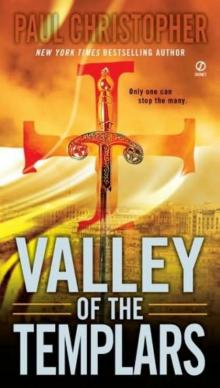 Valley of the Templars
Valley of the Templars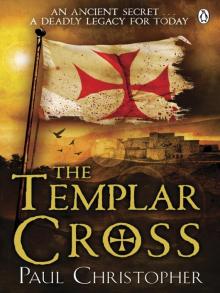 Templar Cross
Templar Cross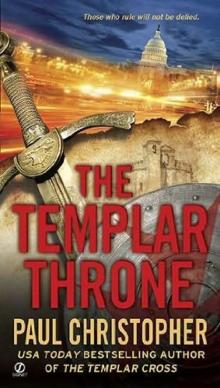 The Templar Throne
The Templar Throne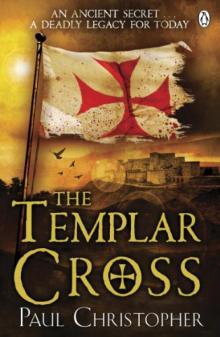 The Templar Cross
The Templar Cross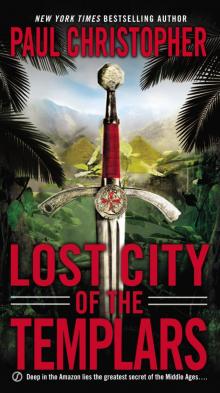 Lost City of the Templars
Lost City of the Templars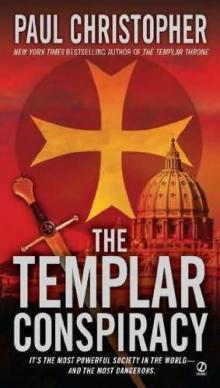 The Templar conspiracy t-4
The Templar conspiracy t-4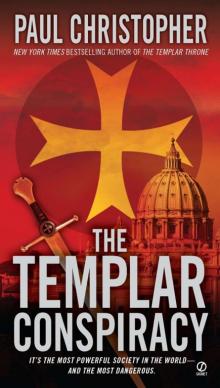 Templar Conspiracy
Templar Conspiracy